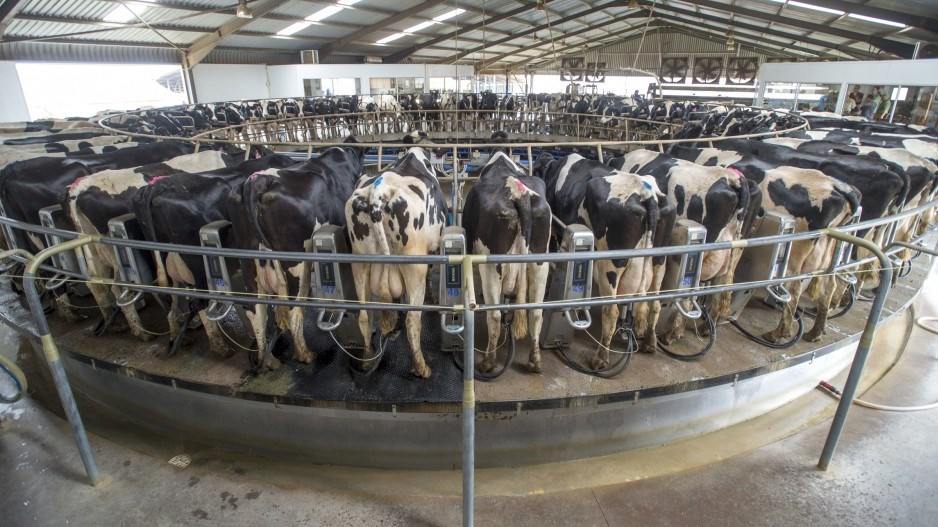The Canadian government will soon begin compensating dairy producers for the impacts of the United States-Mexico-Canada Agreement.
The first payments under the $1.2 billion program will be paid out this year and each year until 2029.
The Dairy Direct Payment Program made four payments worth $1.75 billion between 2019 and 2023 for lost market share due to trade deals with Europe and the Trans-Pacific Partnership.
This time around, the calculation date has been moved up from Oct. 31 to Aug. 31 to improve program efficiency, the government said.
Producers must have a valid dairy quota licence registered with their provincial milk marketing board or agency by that date to be eligible for a payment.
“Setting the date earlier in the year will ensure producers have more time to sign up before the deadline and may receive their payment sooner,” the government said in a news release.
Agriculture Canada is sending registration letters to producers this fall and payments will follow. The registration deadline is March 31, 2024.
There were 9,739 dairies in Canada in 2022.
Producers and processors are sharing total compensation of up to $4.8 billion for lost market share as a result of three trade deals.
Meanwhile, the government also announced spending of $7.5 million over five years for the Dairy Research Cluster. The money comes through the AgriScience Program in the Sustainable Canadian Agricultural Partnership.
“This investment over the next five years to the fourth Dairy Research Cluster is essential to enable robust and evidence-based research that ultimately supports Canadian dairy farmers,” said then-DFC president Pierre Lampron.
He said it supports another step toward carbon neutrality. The industry has a 2050 goal to reach net-zero.
DFC plans to improve environmental and economic sustainability, and industry resiliency. The plan includes reducing greenhouse gas emissions, sequestering carbon, improving cow health and welfare, and improving milk quality.
At DFC’s annual meeting in Winnipeg last week, farmers elected Manitoba producer David Wiens to replace Lampron as president.
Wiens milks 230 cows and has 1,600 acres of crop land with his brother, Charles, in Grunthal.
He has been a DFC director since 2009 and vice-president since 2011.
“Our industry is at a crossroads,” Wiens said in a news release. “We face numerous challenges, but there are also opportunities which we must seize.”
Western directors on this year’s board include Sarah Sache from British Columbia, Wim van de Brake from Alberta, Matthew Flaman from Saskatchewan, and Stefan Singer of Manitoba.




